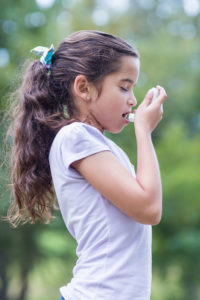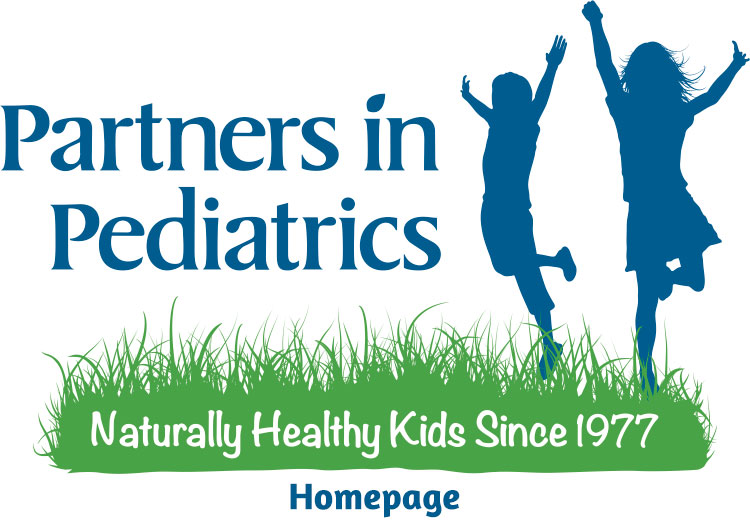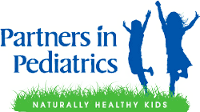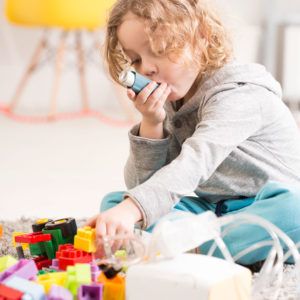Although people with asthma do not appear to be at a higher risk for contracting coronavirus, there is no question that COVID-19 can be particularly troubling for those with asthma, possibly putting them at a higher risk for developing complications. Although most people with COVID-19 will have only a mild illness, the coronavirus can affect the respiratory tract, making it more difficult to breathe. Furthermore, like any other virus or respiratory illness, COVID-19 can trigger asthma. For that reason, we recommend that our families with asthma take steps to keep their asthma under control, as well as steps to protect against COVID-19 (such as washing your hands with soap and water thoroughly and often, refraining from touching your face, disinfecting surfaces, staying home as much as possible, and practicing physical distancing of at least six feet in public). We also STRONGLY recommend that all asthma patients schedule an Asthma Check visit with their PIP provider every 6 months and be sure to get a yearly flu vaccination. Asthma Check visits are timely opportunities for your child to have a review of their specific symptoms, decide upon the best medication management, learn about triggers and actions to take if symptoms develop. We can review and refill medications so that your family will be ready! As your integrative pediatrician in the Denver metro area, we are here to help with guidelines and suggestions for a holistic approach to the management of asthma, using both conventional medicine and complementary and alternative therapies.
What Is Asthma?
Understanding the nature of asthma is helpful to gaining an understanding of how best to control it. Asthma, one of the most common chronic diseases of childhood, is an inflammatory disease of the airways characterized by difficulty breathing and wheezing (a whistling sound produced while breathing out). Children often describe a sensation of “chest tightness,” especially while breathing in. In a younger child, asthma often presents with a persistent cough and a prolongation of exhalation.
A primary feature of asthma is inflammation of the airways caused by an overactive response of your child’s immune system to triggers, such as allergies, exercise (especially in cold or dry air), bacterial infections of the sinuses, ears and lungs, inhaled irritants (such as tobacco and other smoke, paint fumes, air pollution, dust and perfumes), gastro-esophageal reflux (vomiting), and viral respiratory infections (such as COVID-19). Other features of asthma, also in response to the listed triggers, are airway hyper-reactivity (meaning that the muscles surrounding the airways in the lungs are more likely to spasm and narrow) and increased mucous production. When all of these features are combined, the airway becomes very narrow and air can no longer pass with ease, causing the telltale wheezing sound.
Steps to Reduce Asthma Triggers
During the shut downs due to COVID-19, families should try extra hard to keep a clean, allergen-free home environment in an effort to avoid asthma triggers and flare ups. In maintaining a healthy home environment, keep in mind the following tips, taken from our Naturally Healthy Kids handbook (available as an eBook on Amazon):
- If pets are a trigger and finding a new, loving home for your pet is not an option, then try to keep the pet out of your child’s bedroom/play rooms and filter any air ducts in those rooms;
- Vacuum carpets 1 to 2 times a week, and use a HEPA filter or double bag in the vacuum;
- Use only properly cleaned humidifiers and take note if humidifier use increases your child’s symptoms;
- Use of air infiltration systems or HEPA room air purifiers can be helpful, as can regular duct cleaning;
- To avoid exposure to pollens and outdoor molds, stay inside with windows closed during problematic seasons. Remember that pollen counts are usually higher in the afternoon. Air conditioning is preferable to evaporative cooling.
These additional tips may also be helpful:
- Don’t clean if your kids are in the room with you. When you do clean, do not use harsh chemicals. Instead, try to use green products for cleaning or look for “home recipes” that include chemically-safe products such as vinegar;
- Dust your home using a damp towel to prevent dust from dispersing into the air;
- If pollen is not an issue, open windows every so often to ventilate the house;
- When cooking, turn on the stove vent to decrease indoor air pollution;
- Eat in the kitchen, dining or living room to keep pests away from crumbs; and
- If using a computer printer frequently, open a window to ventilate the room because printers are a big contributor to indoor air pollution.
You may also wish to limit smoking or wood burning fires, and the wearing of perfumes, when you are spending time in the house with your kiddos. They will thank you for all your efforts to maintain a healthy environment!

Home Care of Asthma
If your child has been diagnosed with asthma, your health care provider has probably provided you with an “asthma action plan” (a personalized plan for helping manage asthma based on levels of symptom severity). It is especially important to continue to follow your child’s asthma action plan during the time of COVID-19! Home care is best when combined with ongoing Well Care and Asthma Check appointments with your health care provider. PIP is now offering telehealth visits, which can be followed up with an in-office visit, if necessary. If you don’t already have a peak flow meter (a helpful tool for detecting increasing obstruction in the airways), please talk with us about obtaining one. We love to help!
The following prescription medications are commonly used to treat asthma: (Your health care provider or asthma specialist will provide instructions for their use. Be sure to keep your child’s medication handy, including when you travel outside the home. During COVID-19, it is recommended that you be sure to refill your child’s prescriptions and have AT LEAST a two-week supply of medications on hand.)
- Albuterol and levalbuterol (Xopenex)— These medications dilate the bronchial tubes, reversing airway constriction and reducing symptoms such as coughing, shortness of breath and wheezing. They are primarily used to “rescue” a child from acute flare ups of asthma, rather than as a maintenance or preventive therapy, although it can be helpful to “pretreat” your child before exercise or exposure to a known trigger to help avoid asthma symptoms. (Although these medications can be stimulating, causing increased heart rate, hyperactivity and anxiousness, the benefit to your child outweighs any potential adverse effects. You can help your stimulated child by providing a calm environment, restricting visitors and turning off the telephone, and playing your child’s favorite movie or soothing music.) Albuterol can be given through an inhaler, which is most effective when used with a special chamber called a spacer, and both albuterol and levalbuterol can be given through a nebulizer. Be aware that nebulizer use presents some issues during the coronavirus pandemic. Nebulizers aerosolize droplets from the airways, which are then spread into the air, thereby allowing viruses or other microbes to be transmitted. Because of this exposure, it is recommended that no one else be in the room when a person uses a nebulizer and for a few hours afterwards. If others need to be in the same room, they should wear a mask or other protective equipment. Be sure to clean nebulizers before and after each use in order to keep microbes from collecting therein.
- Steroids— These are often used to reduce airway inflammation and swelling. Inhaled steroids, by nebulizer (see precautions above!) or inhaler, are a mainstay in the treatment and prevention of asthma. Oral steroids are occasionally used in severe situations to provide fast and significant relief from restricted airways.
- Singular (generic Montelukast) – Singular is one of the non-steroid oral medications also used to treat airway inflammation. It is taken daily, even when your child is asymptomatic, in order to provide the maximum protection.
Although albuterol and levalbuterol are more “rescue” medications to be used in the event of acute flare ups of asthma, Singular, steroids play a significant role in maintenance and preventive therapy by treating airway inflammation. Be sure to talk with your health care provider about the choice, frequency and duration of treatment with any of these medications.
Integrated Therapies
From the beginning all the way back in 1977, PIP hasn’t just practiced conventional medicine. Instead, as your favorite Colorado pediatrician, and in our pursuit to provide quality pediatric care to your family, we practice both Western and holistic medicine, earning us the description of integrative pediatrician (Denver’s first!). To that end, we’d like to offer the following suggestions, taken from our Naturally Healthy Kids handbook, for treating asthma with integrative therapies, which can be an effective part of your child’s “asthma action plan.” Please refer to the “Administering Integrated Treatments section of Naturally Healthy Kids for guidance on using any of the referenced therapies or feel free to contact us with any questions!
- Aromatherapy: Aromatherapy with either eucalyptus radiata or ravensara aromatica, combined with mandarin, may decrease the frequency of asthma attacks when used as part of a preventive strategy and may soothe asthma symptoms during an attack. To make a preparation, add 2 to 3 drops of each essential oil to 1 ounce of carrier oil. The preparation can be massaged into the soles of your child’s feet or may be administered by steam inhalation or a bath.
- Herbal Remedies: Herbal remedies to use are horehound (reduces mucous production and improves a wet cough), valerian root (a mild herbal sedative that may offer some help in easing a child with a significant cough, particularly at bedtime), and mullein leaf (as an infusion tea that may help decrease the frequency of asthma attacks when used as part of a preventive strategy). Use 2 cups of mullein leaf daily for 3 to 6 months. For dosing of horehound and valerian root, follow the package labeling accurately. NOTE: Echinacea is an immune stimulant. We do NOT recommend its use in diseases in which the immune system is overactive, such as asthma.
- Bach Flower Remedies: Rescue Remedy can help with anxiety associated with coughing episodes. You may use 2 drops every 10 minutes to every few hours, as needed to calm restlessness. A lukewarm bath with 10 drops of Rescue Remedy added to the water can be effective at relieving agitation and stress in general.
- Nutritionals and Supplements: Vitamins A, C and E and essential fatty acids (such as flaxseed oil) may be helpful.
- Homeopathic Remedies: BHI Bronchitis may help resolve bronchial irritation and deep chest coughs, and BHI Asthma may help reduce bronchial spasm and wheezing. They can be taken 2 to 3 times daily during the acute illness and continued for up to 1 to 4 weeks after, depending on the persistence of the cough. Reboost Immune and Reboost Cold & Flu are designed to support the defense system during viral infections, and BHI Inflammation is designed to decrease inflammation and fever from infections to help prevent deterioration and shorten the recovery time. Those remedies can be taken 3 to 6 times daily when the virus is active (as evidenced by fever, lethargy, etc.).
- Dietary Guidelines: Warm foods, such as soups, teas and cooked grains (oatmeal, etc), should be given. Avoid foods that may increase or thicken respiratory mucous (such as dairy products and citrus fruit), as well as cold foods, foods high in sugar, and fried foods. Don’t force food if your child doesn’t feel well enough to eat, but make sure he or she continues a good intake of fluid, including drinking extra water. General guidelines for water, in addition to normal fluid intake, are: 12 to 18 ounces per day for 2 to 5 year olds; 18 to 24 ounces per day for 5 to 12 year olds; and 32 to 48 ounces per day for 13 year olds and up.
Remember, too, that regular exercise can improve lung function in asthmatics, although some children may need medication (such as albuterol) prior to exercise to prevent exercise-induced symptoms. Relaxation and breathing techniques are also invaluable in preventing and supporting an asthma exacerbation. You may want to consider enrolling your child in yoga classes or other techniques to foster relaxation, such as biofeedback and guided imagery. A 20 minute massage performed by parents at bedtime has also been shown to improve lung function in asthmatic children. The bottom line: help your child learn to relax before and during an asthma exacerbation!
We hope the above is helpful in supporting your child with asthma. Remember, breathe deeply and try to relax in these challenging times, knowing that we are here doing our best to help with any concerns, needs or questions that may arise! Give PIP a call today to schedule your Asthma Check soon!




Leave a Reply